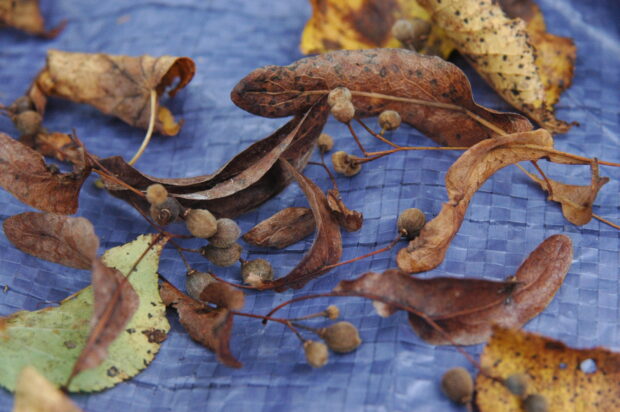
 Megan Shirley, our Incentives Manager, talks about how the Forestry Commission are supporting future tree seed production through a new Seed Sourcing Grant.
Megan Shirley, our Incentives Manager, talks about how the Forestry Commission are supporting future tree seed production through a new Seed Sourcing Grant.
Seed sourcing is an essential part of tree production and one that can sometimes be overlooked. A secure, diverse supply of tree seed is key to creating healthy, resilient woodlands.
As part of targets to reach net zero, the government has committed to treble tree planting rates in England by 2025 and increase planting across the UK to 30,000 hectares per year by the end of this parliament. As planting rates increase, so too will the demand for tree seed.
Introducing the Seed Sourcing Grant
This Autumn, the Forestry Commission (FC) will be launching a new Seed Sourcing Grant (SSG) to support the sector in increasing the quantity, quality, and diversity of Seed Stands and Seed Orchards in England. The grant forms part of the government’s Nature for Climate Fund, which aims to create, restore and protect vital climate-regulating ecosystems including peatlands and woodlands.
The SSG will support projects to increase the quantity, quality, and diversity of Seed Stands and Orchards on the Forest Reproductive Material (FRM) National Register for Basic Material.
The funding is designed to boost domestic tree seed production. This will not only help to meet increased demand for trees but will also reduce the need to buy seed from the international market, lowering the risk of importing harmful pests and pathogens.
The grant also aims to improve the diversity of England’s seed supply, for example, by increasing the range of species and provenances available. This will be crucial for creating diverse and resilient woodlands, which are better able to adapt to future climate conditions as well as new pests and diseases.
The SSG will complement the Tree Production Innovation Fund and the Tree Production Capital Grant, which together seek to enhance the quantity, quality, and diversity of tree planting stock. You can read our Tree Production Innovation Fund - Second spotlight on successful applicants blog post, to learn more about how the Tree Production Innovation Fund has supported the Future Trees Trust to establish Clonal Seed Orchards for oak.
Definitions
Forest Reproductive Material (FRM) refers to fruits, seeds, cones, cuttings, and planting stock used in forest establishment.
Basic Material is the plant material from which FRM is derived and includes Seed Stands and Seed Orchards.
Seed Stands and Orchards are managed by Forestry Commission through the Forest Reproductive Materials (FRM) regulations and voluntary scheme, which includes a National Register of Basic Material.
Seed Stands are defined groups of trees in the landscape from which seed is collected.
Seed Orchards are planted using seed or clonal material from known parents and are generally situated outside of the natural landscape in an area convenient for seed collectors.
What will the funding cover?
SSG funding will be available for the following activities:
- Management of existing Seed Stands which are registered on the National Register of Basic Material to ensure they are productive for seed collectors. Activities could include developing a site management plan, putting in site access, clearing undergrowth or adding fencing to protect from browsing. Funding will only be available for time-bound activities rather than ongoing management.
- Desk and field studies to identify and bring additional Seed Stands onto the National Register of Basic Material. This could be done by researchers or landowners using data sources and field studies and identifying stands that meet criteria.
- Planning and planting of new Seed Stands and their registration on the National Register of Basic Material. Activities could include planning what to plant, ensuring known and appropriate genetic provenance, and capital costs for planting.
- Planning and planting of new registered Seed Orchards and their registration on the National Register of Basic Material.
Proposals can include a combination of activities from the list above. As some activities will take time to implement, multi-year funding will be available.
Defra has worked with technical experts to identify priority species (mostly native broadleaved species) for which Seed Stands and Seed Orchards are most urgently required. Seed sourcing strategies for these species will be published when the grant opens for applications. Projects which deliver against these strategies will be prioritised for financial support and eligible for up to 100% funding.
However, we recognise that planting targets will lead to increased demand across all species. Funding will therefore be open to proposals covering any species listed in the UK FRM scheme, including those in the voluntary scheme. Projects designed to enhance the supply of non-priority species will be eligible for funding of up to 50%.
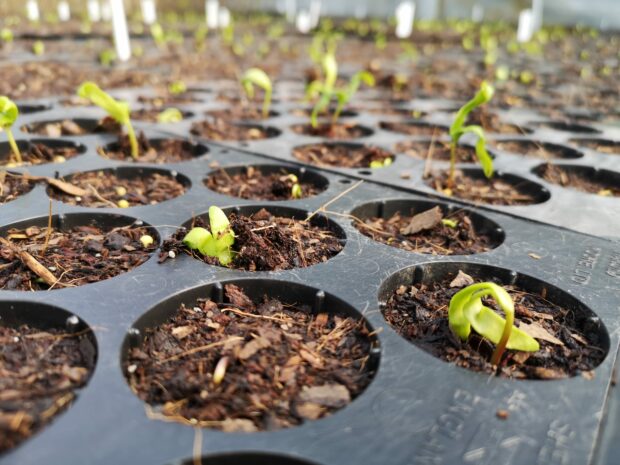
Who can apply?
We hope to attract a broad range of applicants, including both organisations already involved in these activities and those who have not previously considered seed sourcing. We will be encouraging applications from any UK-based public, private or third sector organisation that can demonstrate how the grant will be used to create new or improve existing English Seed Stands and Seed Orchards. Individual private landowners may also apply for eligible activities on their own land.
Find out more
The Seed Sourcing Grant is now open for applications. You can find out more on our Seed Sourcing Grant page or get further help from the Forestry Commission by emailing your enquiry to SSG@forestrycommission.gov.uk.
Join our webinar on Tuesday 11 October 2pm - 3pm, where you can find out more about the Seed Sourcing Grant and how to apply. Register through eventbrite.
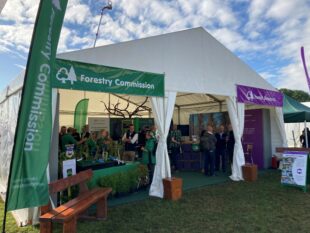
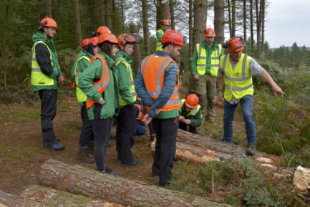
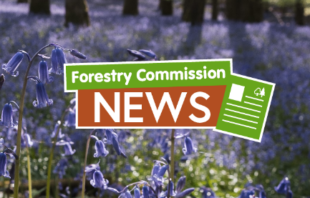
1 comment
Comment by Bob CHARD posted on
I am developing a small experimental woodland. I have more than 90 species of deciduous trees on 1.7 ha. so that I can compare their performance in mixed woodland to produce a diversity of quality hardwood timbers. The experiment is now 12 years since first planting. My plan is to increase the diversity of mixed native and non native trees which are more resilient to climate change. Does RFS publicise a list of members who have uk tree nursaries which can provide the seedlings which I need with best providence for my site, in Somerset. I am having difficulty finding such sources to meet my requirements.